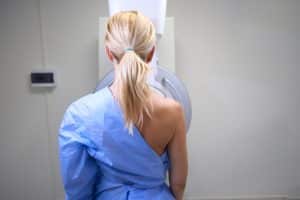Cancer has been a significant health concern globally for decades. When we talk about breast cancer, it is defined as a disease in which abnormal breast cells grow out of control and cause tumors. these tumors can spread throughout the body and become deadly. Early detection is the only way to get survived and a mammogram is the safest and quickest technique that is used to detect any abnormality in the breast tissues several months before false positive mammograms.
False Positive Mammograms
Though the mammogram is believed to be the most secure test and an early detector of any abnormality in breast tissues at the same time in screening mammography false positive results are also experienced by a large number of women. This false positive test leads to more diagnostic work, additional tests, and anxiety.
Mammograms are designed to detect any potential issue so they are sensitive to any sensitivity and this results in false positives. People with such false positive testing undergo further follow-up testing and at the end of a diagnostic evaluation, they are found cancer-free.
Reasons for False Positive Testing
In case of a false positive mammogram result it is crucial to talk to your healthcare provider to figure out the appropriate steps and ensure that all potential issues are properly addressed. False positive testing can occur in women for a variety of reasons. Some of the common reasons for this false positive testing include breast density, benign lesions, calcium deposits which are known as calcifications, breast surgery or any history of radiation therapy, hormonal changes, technical issues, wrong interpretation by the radiologists, and overlapped breast tissues.
False Testing and Its Outcomes
Recent research has unveiled a concerning statistic: after 10 years of annual screening, half of all women may experience false-positive mammograms. This insight sheds light on the complexity associated with breast cancer detection and the way it disturbs and stresses the people who face false positive mammogram screening.
This article delves into the phenomenon of false-positive mammograms, its impacts on women’s health, and psychological breakdowns that occurred because of false-positive resting.
The 50% Dilemma: What the Numbers Reveal
The statistics of false testing is quite alarming, it clearly shows after a decade of annual screening half of the women will face at least one false positive mammogram. This alarming revelation has put a question mark on the efficacy of screening programs raising many concerns and shattering women’s calmness and composure. This false testing leads to the management of false alarms and concerns. This often spoils and pushes behind the benefits of mammography creating a kind of unrest and emotional turbulence.
The Emotional Turmoil
The emotional aftermath of receiving a false positive mammogram can be overwhelming. A woman who receives such news faces a collision of emotions – relief for not having cancer but also anxiety and uncertainty about her health. The mental strain during the waiting period for additional tests and evaluations is undeniable. This emotional rollercoaster can lead to sleepless nights, stress, and a profound fear of future screenings. Women often grapple with the question of whether they can trust future mammogram results, which can erode the very foundation of early detection.
Healthcare Burden and Resource Allocation
The prevalence of false-positive mammograms does not only affect the emotional well-being of women; it also places a burden on healthcare systems. Resources, both financial and personal, are consumed in the process of follow-up examinations, additional imaging, and biopsies. This strain on resources diverts attention from other crucial aspects of healthcare and can potentially lead to delays in diagnoses and treatment for those who have breast cancer. The need to strike a balance between rigorous screening and resource allocation is evident.
Empowering Informed Decisions
Amid the challenges posed by false-positive mammograms, the importance of informed decision-making becomes paramount. Women must be educated about the possibility of false positives before undergoing screening. This knowledge equips them to approach their results with a more balanced perspective, understanding that further testing might be required before definitive conclusions are drawn. Empowering women with information can help alleviate some of the psychological distress associated with receiving a false positive result.
Redefining Screening Protocols
The revelation that half of all women may experience false-positive mammograms within a decade of annual screening prompts a reevaluation of screening protocols. Researchers and healthcare professionals need to focus on refining imaging techniques and interpretation methods to reduce the occurrence of false positives. Additionally, the development of personalized risk assessment tools could help identify individuals who are more prone to false positives, allowing for tailored screening approaches.
Conclusion
The journey of annual mammogram screening is a complex one, marked by the possibility of false positive results that can unsettle women’s emotional equilibrium and strain healthcare resources. While false positives are not indicative of cancer, their impact on psychological well-being cannot be ignored. The healthcare community must work towards striking a balance between rigorous early detection and the potential downsides of false alarms.
Through informed decision-making, continued research, and advancements in imaging technology, the goal of saving lives through early detection can be achieved while minimizing the toll of false positive mammograms.




